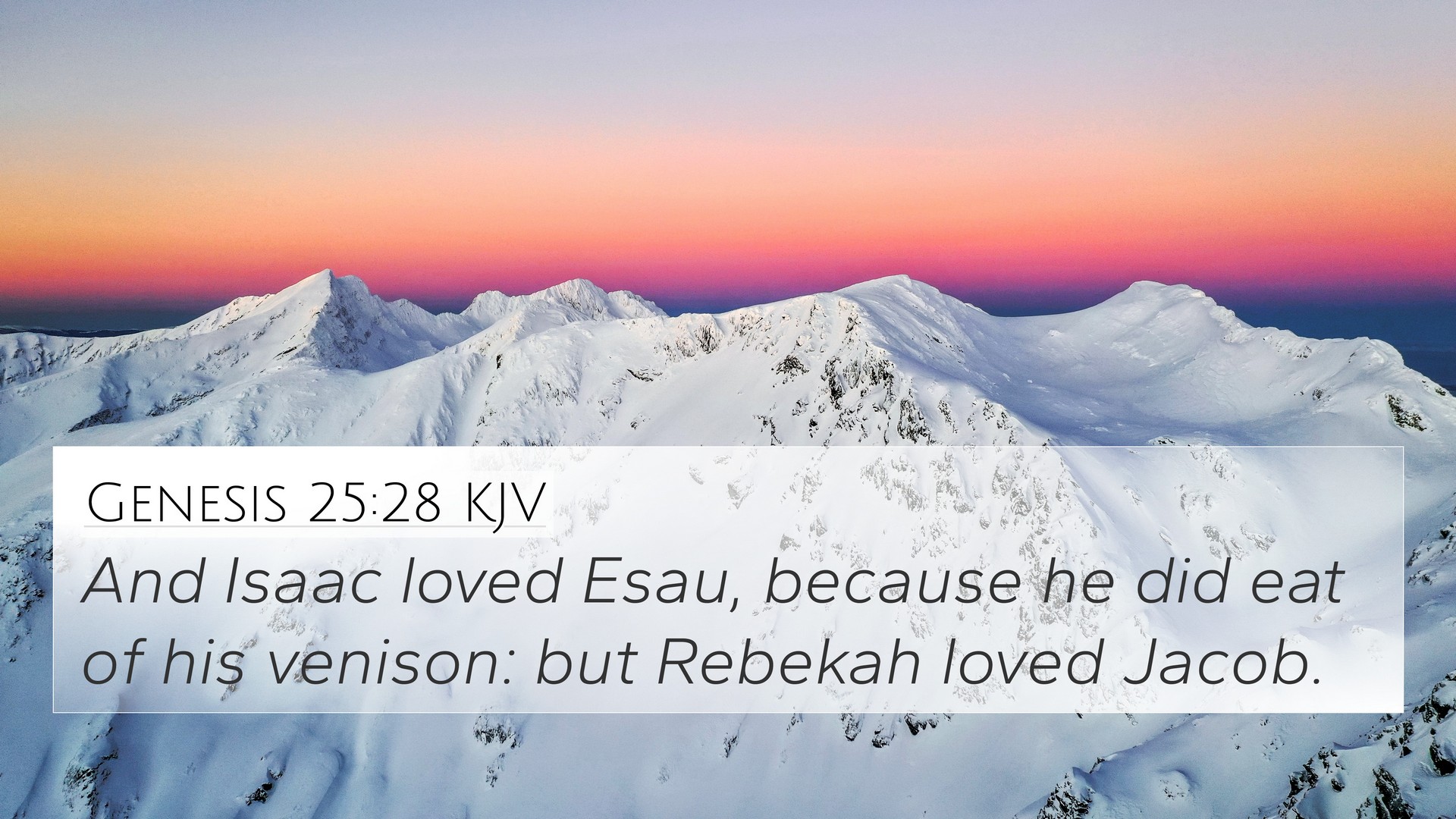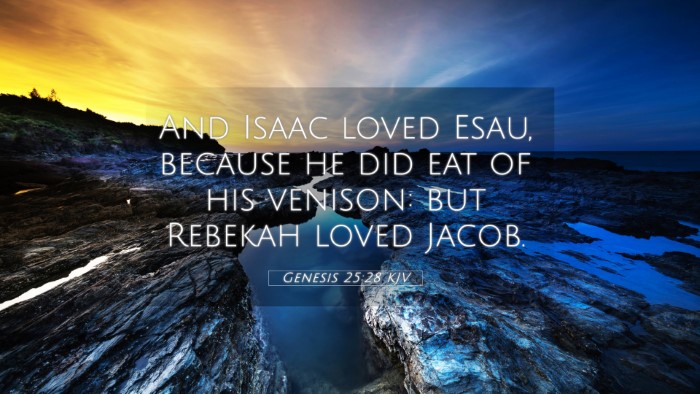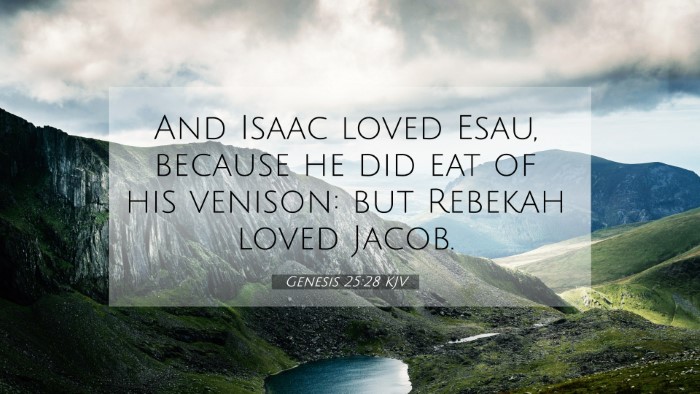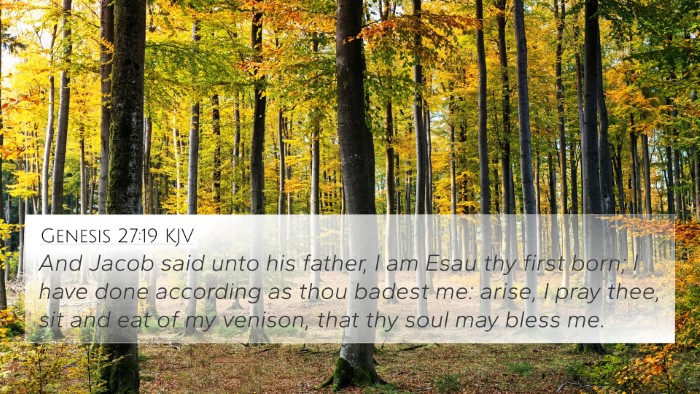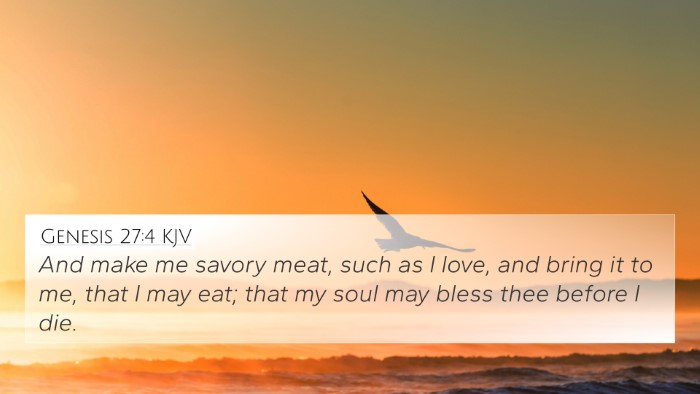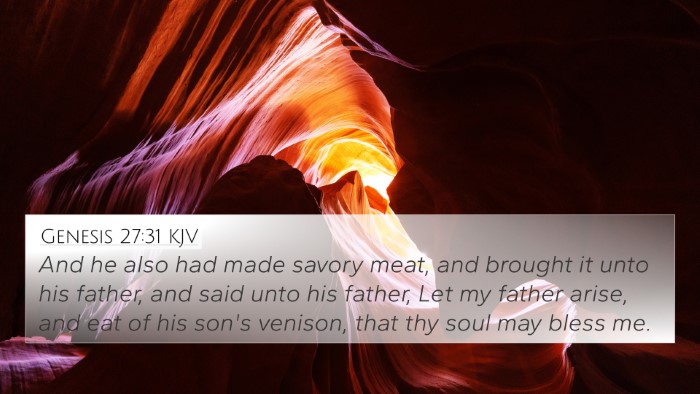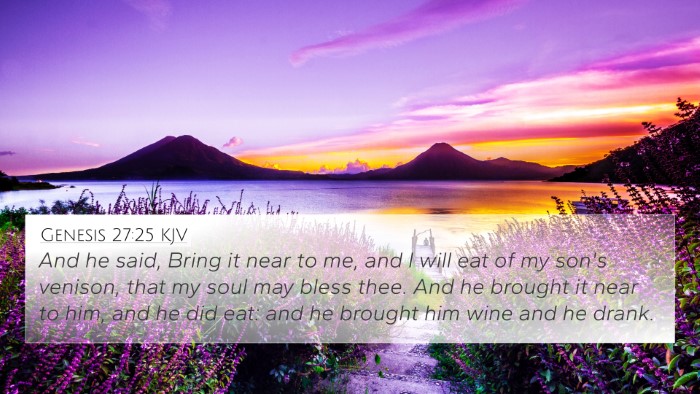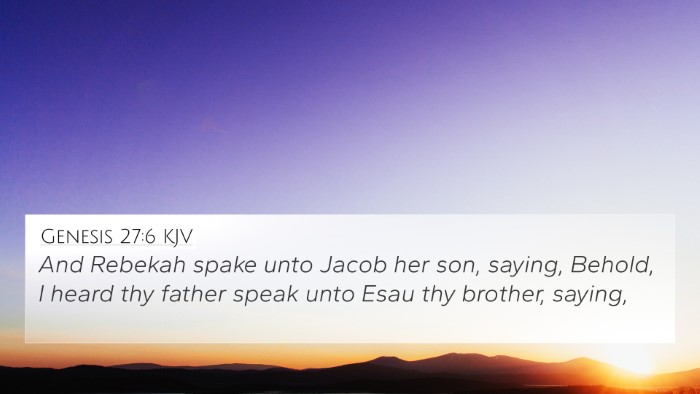Understanding Genesis 25:28
Genesis 25:28 states: "And Isaac loved Esau because he did eat of his venison: but Rebekah loved Jacob."
This verse lays the groundwork for understanding the dynamics between the two brothers, Esau and Jacob, as well as their parents’ differing affections.
Contextual Analysis
In the broader narrative of Genesis, this verse captures a pivotal moment regarding family favor and rivalry.
Isaac's love for Esau, linked to the hunter's prowess, contrasts sharply with Rebekah’s fondness for Jacob.
This distinct parental favoritism sets the tone for the events that follow, which are steeped in conflict and divine purpose.
Commentary Insights
-
Matthew Henry's Commentary:
Matthew Henry emphasizes the danger of parental favoritism. He notes that Isaac’s physical attraction to Esau’s hunting skills led to a biased affection that would ultimately sow discord within the family.
The affection for Jacob by Rebekah might stem from her foreknowledge of God's prophecy regarding her sons, revealing deeper themes of divine choice.
-
Albert Barnes' Notes:
Albert Barnes explains that the love Isaac had for Esau was tangible and based on earthly skills. In contrast, Rebekah’s love for Jacob was not just emotional but was driven by the understanding of God's plan.
This also foreshadows Jacob’s future role in the covenant line, hinting at a divine preference that transcends human affection.
-
Adam Clarke's Commentary:
Adam Clarke points out the implications of favoritism. He discusses how such partiality can lead to division and strife, hence underlining the psychological aspects of familial relationships.
Clarke also reflects on the greater thematic elements of God’s sovereignty in electing Jacob over Esau, despite the cultural expectations of primogeniture.
Thematic Connections and Cross-References
Genesis 25:28 illustrates the themes of favoritism, divine sovereignty, and familial conflict.
These themes echo throughout the Bible, particularly in discussions about God's election and the nature of love within families.
Relevant Bible Cross-References
- Romans 9:10-13: This passage addresses God's sovereign choice of Jacob over Esau, reinforcing the theological implications of Genesis 25:28.
- Malachi 1:2-3: Here, God describes His love for Jacob and hatred for Esau, further evidencing the divine preference initiated in Genesis.
- Hebrews 12:16-17: This scripture warns against being like Esau, who despised his birthright, linking back to his character in Genesis.
- Genesis 27: This chapter recounts the deception surrounding Isaac's blessing and underscores the conflict bred from favoritism.
- James 2:1: The New Testament echoes the dangers of favoritism, reminding believers to not show partiality, reflecting the struggles seen in Genesis.
- Genesis 29:31-30:24: The dynamics of favoritism between Leah and Rachel further illustrate the theme established in Genesis 25:28.
- 1 Corinthians 1:26-29: Paul reminds believers that God chooses the foolish things to confound the wise, linking to God’s choice of Jacob despite human standards.
Concluding Thoughts
In summary, Genesis 25:28 encapsulates significant themes of divine election and human relationships marked by favoritism.
As seen through the lens of various commentaries and scriptural connections, this verse not only serves as a historical account but also holds profound theological insights applicable to contemporary readers.
Understanding these connections between Bible verses will aid in grasping the complexity of God’s redemptive plan throughout scripture.
